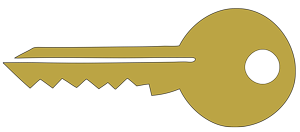Powers and Functions of the House of Delegates
The House of Delegates, created in 1966, is the body charged with setting the policy of PBA. All voting rights of PBA members are exercised through the House, including the right to vote on matters affecting the substance and administration of PBA policy, on amendments to the Articles of Incorporation or the Bylaws. The House also has the authority to judge the election and qualifications of its own members, controls all membership dues and approves increases. (BL-Section 302)
Composition of the House
The membership of the House of Delegates is divided into two groups: voting members and nonvoting members. Each of the following members is entitled to one vote in the House (BL-Section 301):
- General Officers of the Association;
- other members of the Board of Governors;
- the president of each local Bar Association or the nominee of the president who shall be a member of the local Bar Association;
- one member from each of the 12 zones for every 100 active PBA members in that particular zone;
- one additional member from each of the zones in which every local bar association has adopted the Unit Plan of Membership;
- the living former Presidents and the five living former Chairs of the House of Delegates who have most recently held office as Chair;
- the living former PBA Secretary and former PBA Treasurer who have most recently held those offices;
- Delegates representing the PBA Sections;
- other former members of the Board who have held Board offices within the past three Association years;
- one additional member from each Zone appointed as a Young Lawyer Zone Delegate under section 904 of the Bylaws; and
- each former president of the American Bar Association.
No voting member is entitled to more than one vote, even if serving in a dual capacity in the House. (BL-Section 303)
The following members of the House of Delegates have the same rights as the voting members, except that they are not allowed to vote, nor are they allowed to appeal a ruling of the House Chairman (BL-Section 303):
- other former Chairs of the House of Delegates;
- the Pennsylvania State Delegate to the House of Delegates of the American Bar Association;
- the Attorney General of Pennsylvania;
- the Court Administrator of Pennsylvania;
- Deans of the Pennsylvania law schools and also former deans of Pennsylvania law schools as long as they maintain membership in the Association;
- one registered Student Member of each accredited Pennsylvania law school as designated by the Student Members registered at that school; and
- one representative (who is an active member of the association and who is not otherwise a voting member of the House of Delegates) appointed by any statewide organization of attorneys, which organization is approved by the House of Delegates and which has at a minimum 100 members of the bar of the Supreme Court of Pennsylvania, one or more of whom practice in each zone.
Geographic Structure
Delegate Attendance Policy and Excused Absence Procedures
Zone Delegate Attendance Policy and Excused Absence Procedures
A zone delegate who does not register in person or by means of electronic technology, conference telephone or similar communications equipment for a House of Delegates meeting should request an excuse for the absence by filing a written request with the Committee on Credentials and Admissions before the meeting or within 30 days thereafter. The Committee will act on the request within 50 days of its receipt. A delegate may appeal a rejection to the House by filing an appeal with the Chair of the House within 30 days after the notice of rejection. [BL-Rule 324 (c)]
If a zone delegate fails to register in person for two successive meetings of the House and has not received an approved excused absence from the Credentials and Admissions Committee for at least one of the meetings, the delegate’s office is declared vacant. [BL-Section 951 (a)]
Click here to access the Guidelines of the Committee on Credentials and Admissions Regarding Excused Absences in Accordance with House Rule 324.
Committees of the House
There are three committees of the House to aid in its function. Each committee consists of five delegates, with the President and the Chair of the House serving as ex officio members.
Unless otherwise directed by the House, the members of each committee serve until the adjournment of the next annual meeting of the House after their appointment, and thereafter until their successors have been appointed. Appointments are made by the Chair of the House unless otherwise directed by the House. [BL-Rule 330 (b), (c)]
House of Delegates Committee Members 
Operational Policies of the House of Delegates
House of Delegates Archive
Summary of House Rules and Procedures
Guidelines & Resources for Submitting Reports & Recommendations to the House of Delegates